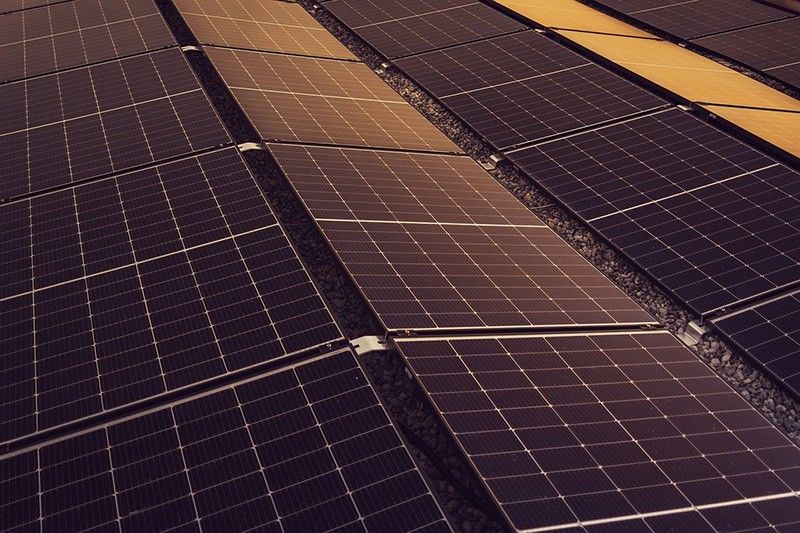Intentions to action: Inspiring not just attracting foreign investments

One of the things to be thankful about is that our government leaders do not need any convincing that infrastructure development must be a central part of the economic agenda. President Ferdinand Marcos Jr., himself has acknowledged this in numerous pronouncements.
In last year’s State of the Nation Address, he said that the "Build Better More" program is designed to enhance economic efficiency by improving transportation and reducing costs and time for goods and services movement. Specifically, the Philippine Development Plan (PDP) 2023-2028 recognizes the need for significant investments in various infrastructure sectors to address current inadequacies and enhance connectivity, water resources, and social infrastructure. In 2023, the National Economic and Development Authority (NEDA) approved 194 projects worth P9 trillion.
At the start of this year, Marcos again committed to streamline regulations to expedite infrastructure projects.
During the Philippine Economic Briefing (PEB) Manila entitled "Navigating PH's Investment Landscape: Where to Invest?", the Department of Transportation (DOTr) Secretary Jaime Bautista highlighted that there are at least 155 projects under the planning and project development phase in the Transportation Modernization Program.
For its part, DOTr is responsible for 69 Infrastructure Flagship Projects (IFPs) out of the 185 IFPs of the Philippine Government as of February 2024, with an indicative amount of P5,789.13 billion out of the P9,143.16 billion (63%) total indicative cost of IFPs. Furthermore, the department has investment-approved projects amounting to P369.3 billion from November 2022 to date.
These plans and commitments are best seen in actual efforts to engage foreign investors in an attempt to attract them to come to the country.
For example, in early May this year, ACCIONA Chairman and CEO José Manuel Entrecanales paid a visit to the Philippines. He met with several officials, including Special Assistant to the President for Investment and Economic Affairs Secretary Frederic Go and Cebu Governor Gwendolyn Garcia to discuss future infrastructure projects.
During the Makati Business Club's Global Leaders Series 2024, Mr. Entrecanales discussed the company's strategic focus on the Philippines as its hub in Southeast Asia, emphasizing the integral role of sustainability in ACCIONA's operations.
But who is ACCIONA and what is it bringing to the table?
ACCIONA, a Spain-based global company, is a leader in the provision of regenerative solutions for a decarbonized economy specializing in the development and management of infrastructure and renewable energies. It has recently upped its stake in the Philippines – ACCIONA Energia has acquired an 80% stake in Freya Renewables, adding 880MW of renewable energy projects under development, including a flagship 150MW solar power plant in Daanbantayan, Cebu. This is the country's first public-private partnership in solar power.
ACCIONA is also developing a 156MW wind farm in Pantabangan, Nueva Ecija, and has started construction on the 100MW Kalayaan 2 wind farm in Laguna Province. These projects contribute to the national goal of increasing renewable energy's share to 35% by 2030 and 50% by 2040, reducing dependence on imported fossil fuels.
Projects resulting from these investments are expected to create thousands of quality green jobs during the construction and operation of renewable energy facilities, promoting sustainable economic development and upskilling the Filipino workforce. They also demonstrate ACCIONA’s long-term commitment to the Philippines, boosting investor confidence and attracting more foreign direct investments into the country..
Indeed, sustainable infrastructure development improves economic competitiveness and prepares the Philippines for a low-carbon economy. Renewable energy investments enhance the country's energy security by reducing reliance on imported fossil fuels, which are subject to global price volatility. The presence of ACCIONA catalyzes supply chain opportunities and capability-building for local businesses supporting utility-scale renewable projects.
But alongside investments and economic targets, it is also noteworthy to look into the social impact of ACCIONA’s presence in the Philippines.
Its "Light at Home" program provides solar home systems to underserved households in remote areas of Palawan, offering a reliable source of clean power. The initiative has already benefited 600 families, with plans to reach over 1,500 households by 2025. This program improves economic opportunities, enhances community services, and reduces health hazards from polluting fuel-based lamps. For this initiative, ACCIONA collaborates with local partners like the Ayala Foundation and receives co-financing from the Spanish aid agency AECID.
ACCIONA acknowledges that it can do more as it collaborates with other organizations to achieve its objectives. Thus, it is engaging with global organizations like UNICEF and the Green Climate Fund to expand its social impact across other energy-poor regions in the Philippines.
In these ventures, the company employs a grassroots approach to ensure that no Filipino community is left behind in the nation’s sustainable development journey.
Evidently, ACCIONA’s comprehensive approach balances profit with social progress, investing in both large-scale infrastructure for national development and grassroots empowerment projects. This dual focus promotes inclusive growth and a sustainable future for all Filipinos.
**
This is not to say that ACCIONA is not the only company that has acknowledged the merits of the Philippines as an investment destination. ACCIONA is just one of many enterprises that have devoted its resources to the country after seeing great need for green infrastructure, on one hand, and the strong will of its leaders to entice foreign investors to pour fresh capital that would drive sustainable and inclusive economic growth.
The commitment of ACCIONA is heartening because it demonstrates that all the talk about investments are not empty aspirations for an economy like the Philippines. Rather, it is a reminder that while certain sectors and industries have much to learn and accomplish, legislative and bureaucratic reform can yield positive outcomes and that an investment-driven economy is not only possible but very doable.
Rupert Paul Manhit is the COO and managing director of think tank Stratbase Group. He is the executive director of Philippine Trade Foundation (Phils Inc.)
- Latest






























